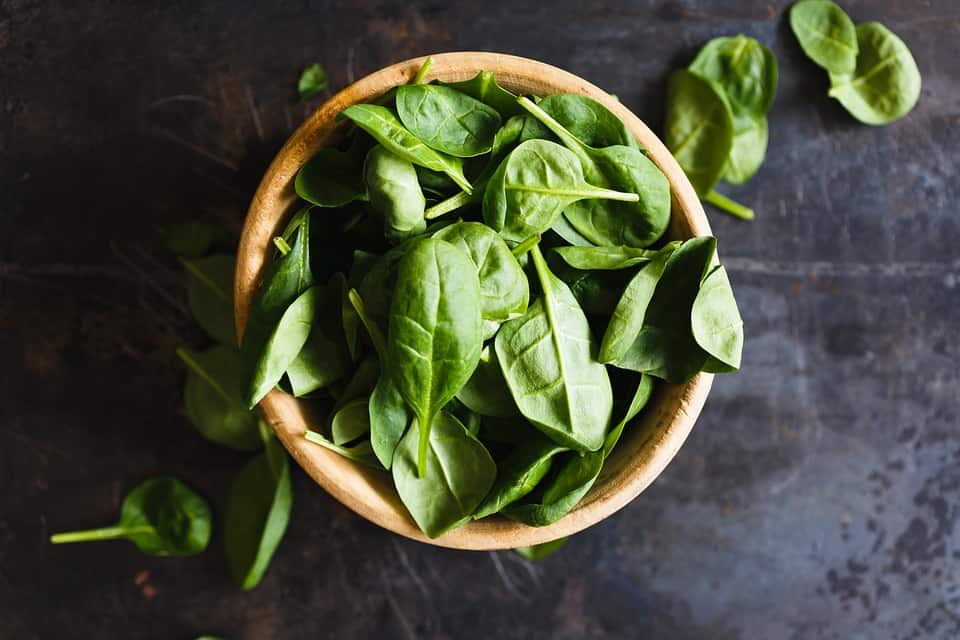Introduction
Gastric sleeve surgery, also known as sleeve gastrectomy, is a popular weight loss surgery that involves removing a large portion of the stomach to create a smaller, sleeve-shaped stomach. This procedure helps patients lose weight by reducing the amount of food they can eat and by changing the way their body processes food.
After undergoing gastric sleeve surgery, patients need to follow a specific diet plan to ensure that they are getting the necessary nutrients while also losing weight. In this article, we will discuss the two-year post-op gastric sleeve diet, including the foods to eat and avoid, the importance of hydration, exercise, and supplements.
What to Eat After Gastric Sleeve Surgery
Following gastric sleeve surgery, patients should focus on eating high-protein, low-fat foods. This helps to promote weight loss while also ensuring that the body is getting the nutrients it needs.
Protein should be the primary focus of every meal. Foods such as lean meats, eggs, low-fat dairy, and legumes are excellent sources of protein. These foods help to keep patients feeling full for longer periods, which reduces the likelihood of overeating.
Fruits and vegetables should also be a significant part of the post-op gastric sleeve diet. These foods are low in calories but high in fiber, vitamins, and minerals. They help to keep patients feeling full while also providing the necessary nutrients for good health.
Carbohydrates should be limited after gastric sleeve surgery, as they are often high in calories and low in nutrients. Foods such as pasta, bread, and rice should be consumed in moderation or avoided altogether.
What to Avoid After Gastric Sleeve Surgery
Certain foods should be avoided after gastric sleeve surgery, as they can cause discomfort, nausea, or vomiting. These include:
- Carbonated beverages
- Sugary foods and drinks
- Fried foods
- High-fat foods
- Processed foods
These foods are high in calories and low in nutrients, which makes it easier for patients to gain weight after surgery. They can also cause discomfort or other digestive problems.
Hydration After Gastric Sleeve Surgery
Staying hydrated is essential after gastric sleeve surgery. Patients should aim to drink at least 64 ounces of water per day, or more if they are exercising or living in a hot climate.
Hydration is important for several reasons. Firstly, it helps to keep patients feeling full, which reduces the likelihood of overeating. Secondly, it helps to prevent constipation, which is a common problem after surgery. Lastly, it helps to flush toxins from the body, which promotes good health.
Exercise After Gastric Sleeve Surgery
Exercise is an essential part of any weight loss plan, including the post-op gastric sleeve diet. Patients should aim to get at least 30 minutes of moderate exercise per day, such as walking, cycling, or swimming.
Exercise helps to promote weight loss by burning calories and building muscle. It also helps to improve cardiovascular health, increase energy levels, and reduce stress.
Supplements After Gastric Sleeve Surgery
After gastric sleeve surgery, patients may need to take supplements to ensure that they are getting the necessary nutrients. Common supplements include:
- Multivitamins
- Calcium
- Vitamin D
- B12
- Iron
These supplements help to prevent nutritional deficiencies, which can lead to health problems. Patients should consult with their doctor or nutritionist to determine which supplements are right for them.
Conclusion
The two-year post-op gastric sleeve diet is essential for the success of gastric sleeve surgery. Patients should focus on eating high-protein, low-fat foods, avoiding sugary and processed foods, staying hydrated, exercising regularly, and taking supplements as needed. By following these guidelines, patients can achieve their weight loss goals while also improving their overall health and well-being.
Top Questions About 2 Years Post Op Gastric Sleeve Diet
What is a 2 Years Post Op Gastric Sleeve Diet?
A 2 years post op gastric sleeve diet is a meal plan designed for individuals who have undergone gastric sleeve surgery at least 2 years ago. The diet is aimed at helping patients maintain their weight loss and overall health. It involves a combination of healthy food choices, portion control, and regular exercise.
The 3 most important information about the 2 years post op gastric sleeve diet are:
1. The diet is designed for individuals who have undergone gastric sleeve surgery at least 2 years ago.
2. The diet involves a combination of healthy food choices, portion control, and regular exercise.
3. The diet is aimed at helping patients maintain their weight loss and overall health.
What Foods Should be Included in a 2 Years Post Op Gastric Sleeve Diet?
The 2 years post op gastric sleeve diet should include a variety of nutrient-rich foods that are low in calories and high in protein. These foods should be easy to digest and should not cause discomfort or pain. Some examples of foods that should be included in the diet are:
1. Lean protein sources such as chicken, fish, and tofu.
2. Non-starchy vegetables such as broccoli, spinach, and carrots.
3. Whole grains such as quinoa, brown rice, and whole-wheat bread.
The 3 most important information about the foods that should be included in a 2 years post op gastric sleeve diet are:
1. Foods should be nutrient-rich, low in calories, and high in protein.
2. Foods should be easy to digest and should not cause discomfort or pain.
3. Foods that should be included in the diet are lean protein sources, non-starchy vegetables, and whole grains.
What Foods Should be Avoided in a 2 Years Post Op Gastric Sleeve Diet?
There are certain foods that should be avoided in a 2 years post op gastric sleeve diet. These foods can cause discomfort, pain, and may lead to weight gain. Some examples of foods that should be avoided are:
1. High-fat foods such as fried foods, fatty meats, and full-fat dairy products.
2. Sugary foods such as candy, cookies, and soda.
3. Processed foods such as chips, crackers, and snack foods.
The 3 most important information about the foods that should be avoided in a 2 years post op gastric sleeve diet are:
1. Foods that can cause discomfort, pain, and may lead to weight gain should be avoided.
2. Examples of foods that should be avoided are high-fat foods, sugary foods, and processed foods.
3. Avoiding these types of foods can help individuals maintain their weight loss and overall health.
How Often Should Meals be Consumed in a 2 Years Post Op Gastric Sleeve Diet?
In a 2 years post op gastric sleeve diet, it is important to consume small, frequent meals throughout the day. This helps to prevent overeating and promotes healthy digestion. Patients should aim to eat 3-4 small meals per day, with snacks in between meals if necessary.
The 3 most important information about how often meals should be consumed in a 2 years post op gastric sleeve diet are:
1. Small, frequent meals should be consumed throughout the day.
2. Patients should aim to eat 3-4 small meals per day, with snacks in between meals if necessary.
3. Eating small, frequent meals can help prevent overeating and promote healthy digestion.
What are the Benefits of a 2 Years Post Op Gastric Sleeve Diet?
There are several benefits to following a 2 years post op gastric sleeve diet. These benefits include:
1. Maintaining weight loss: Following a healthy diet can help individuals maintain their weight loss after gastric sleeve surgery.
2. Improved overall health: A healthy diet can help prevent chronic diseases such as diabetes, heart disease, and high blood pressure.
3. Increased energy: Eating a nutrient-rich diet can provide the body with the energy it needs to perform daily activities.
The 3 most important information about the benefits of a 2 years post op gastric sleeve diet are:
1. Following a healthy diet can help individuals maintain their weight loss after gastric sleeve surgery.
2. A healthy diet can help prevent chronic diseases such as diabetes, heart disease, and high blood pressure.
3. Eating a nutrient-rich diet can provide the body with the energy it needs to perform daily activities.
Wrong Assumptions Concerning 2 Years Post Op Gastric Sleeve Diet
Misconception 1: Gastric Sleeve Surgery is a Quick Fix
One of the most common misconceptions about gastric sleeve surgery is that it is a quick fix for obesity. Many people believe that the surgery will solve all their weight problems overnight, but this is not true. In fact, the surgery is just the first step in a long-term weight loss journey that requires significant effort and lifestyle changes.
Misconception 2: The Diet After Gastric Sleeve Surgery is Restrictive
Another common misconception about gastric sleeve surgery is that the diet after the procedure is very restrictive. While it is true that patients need to follow a specific diet plan to ensure successful weight loss, the diet is not as restrictive as many people think. Patients are encouraged to eat a variety of healthy foods, such as lean proteins, fruits, vegetables, and whole grains. The main focus is on portion control and avoiding high-calorie, high-fat foods.
Misconception 3: You Can’t Eat Your Favorite Foods After Gastric Sleeve Surgery
Many people believe that they will no longer be able to enjoy their favorite foods after gastric sleeve surgery. While it is true that patients need to make some dietary changes, they can still enjoy their favorite foods in moderation. The key is to focus on portion control and eating a balanced diet. Patients should work with their doctor and nutritionist to develop a personalized meal plan that includes their favorite foods.
Misconception 4: You Can’t Exercise After Gastric Sleeve Surgery
Some people believe that they cannot exercise after gastric sleeve surgery. However, this is not true. Exercise is an essential component of a successful weight loss journey and can help patients maintain their weight loss over time. After surgery, patients should start with low-impact exercises, such as walking and swimming, and gradually increase their activity level as they heal.
Misconception 5: Weight Loss is Guaranteed After Gastric Sleeve Surgery
While gastric sleeve surgery is an effective weight loss tool, it is not a guarantee of weight loss. Patients still need to make significant lifestyle changes to achieve and maintain their weight loss goals. Some patients may not lose as much weight as they had hoped, while others may experience weight regain over time. It is crucial for patients to work closely with their doctor and nutritionist to develop a long-term weight loss plan that works for them.
2 Years Post Op Gastric Sleeve Diet
#years #postop #gastric #sleeve #surgery #diet #consist

